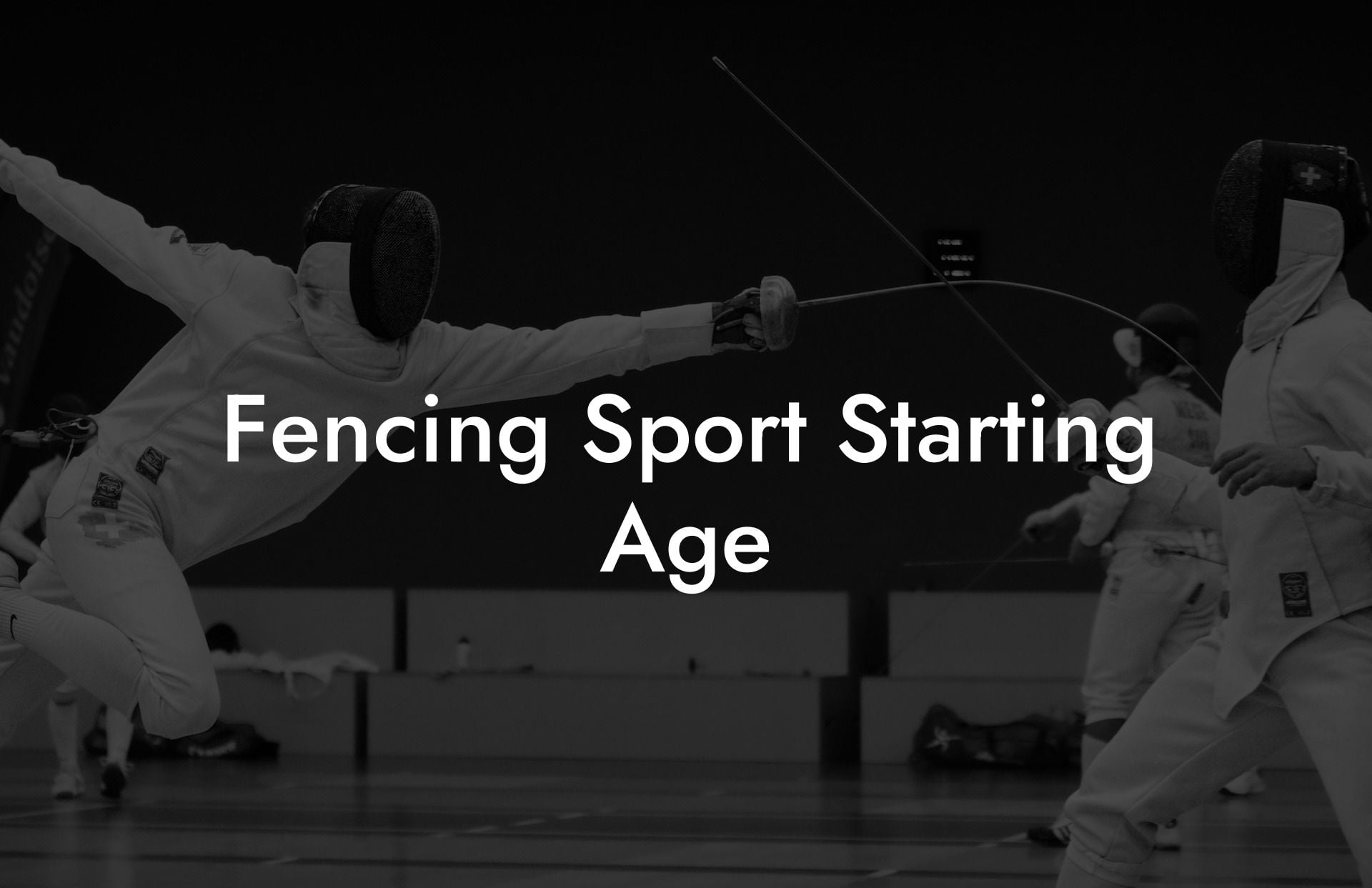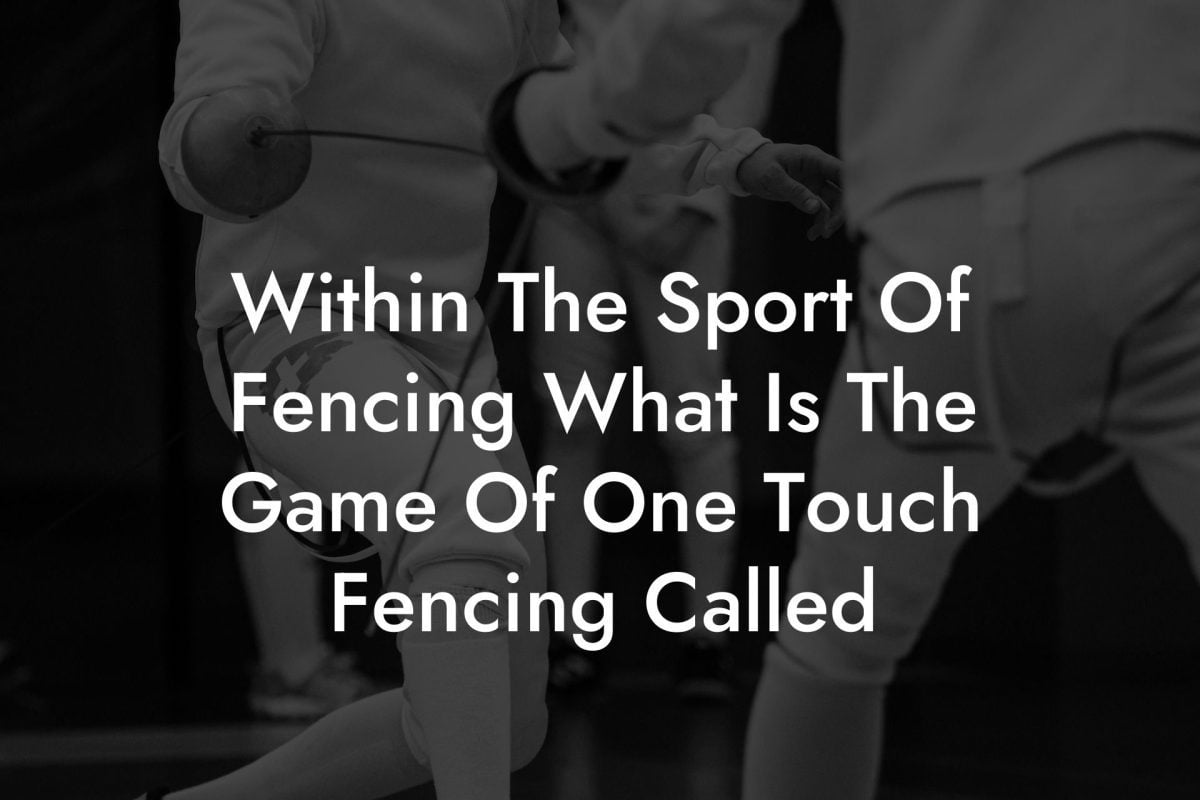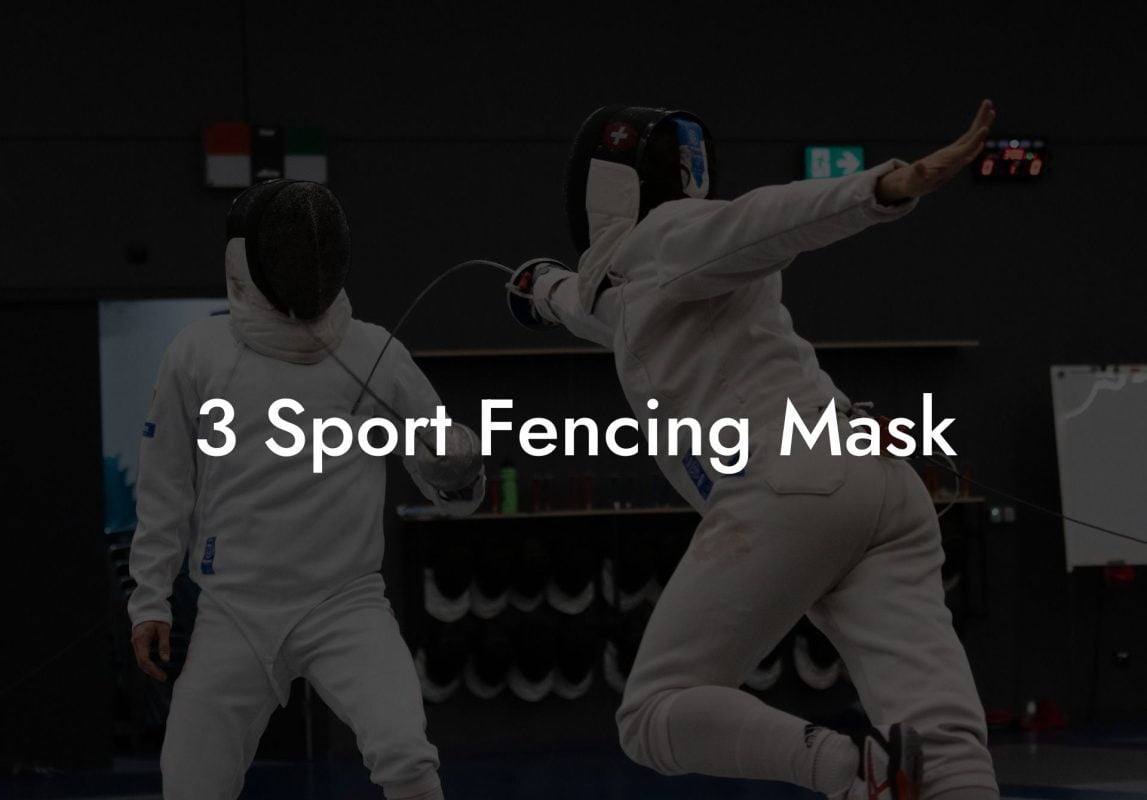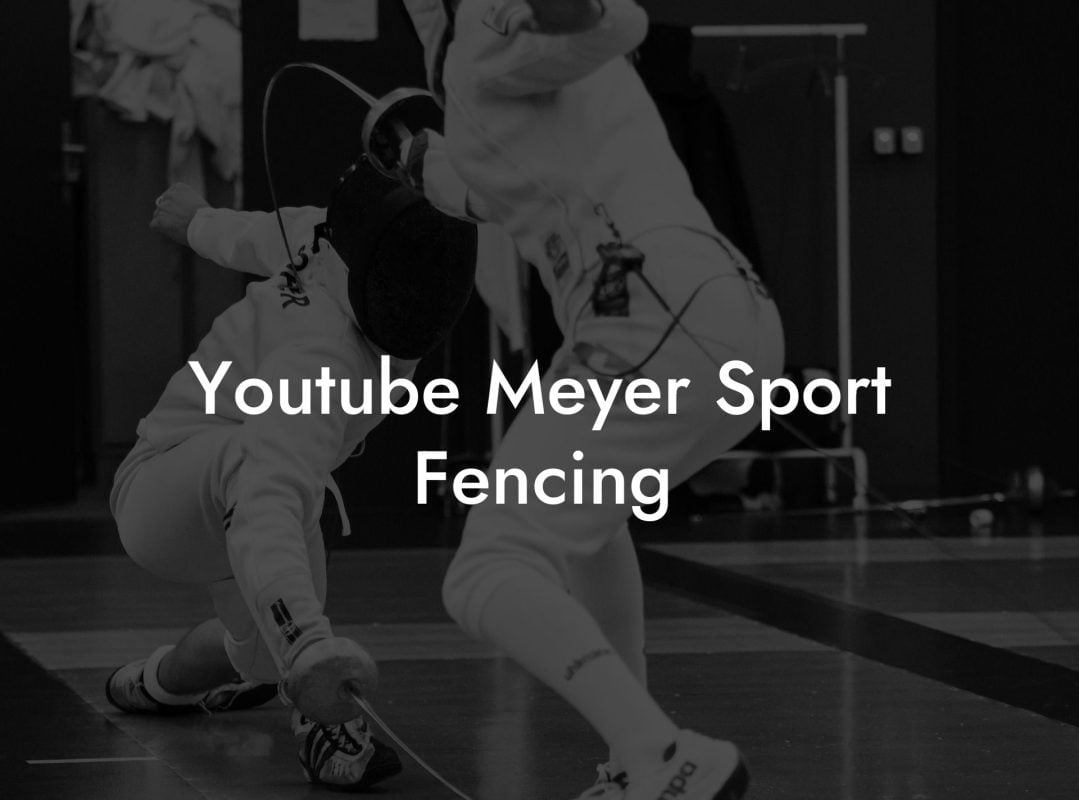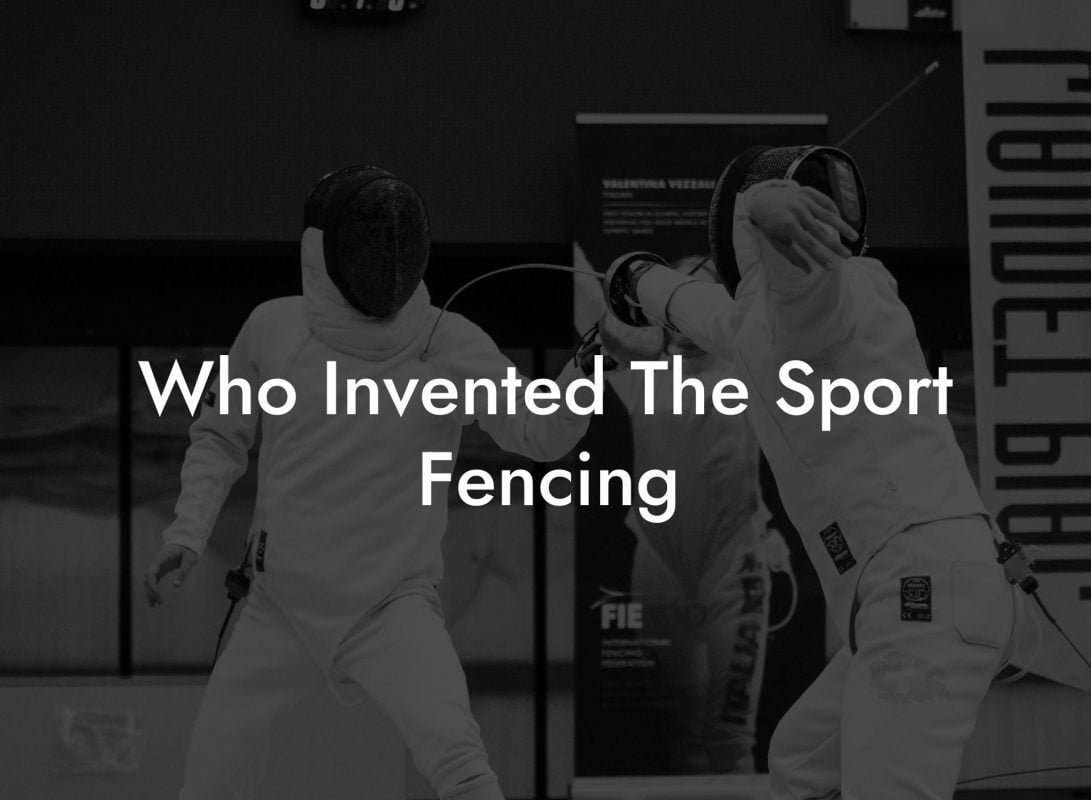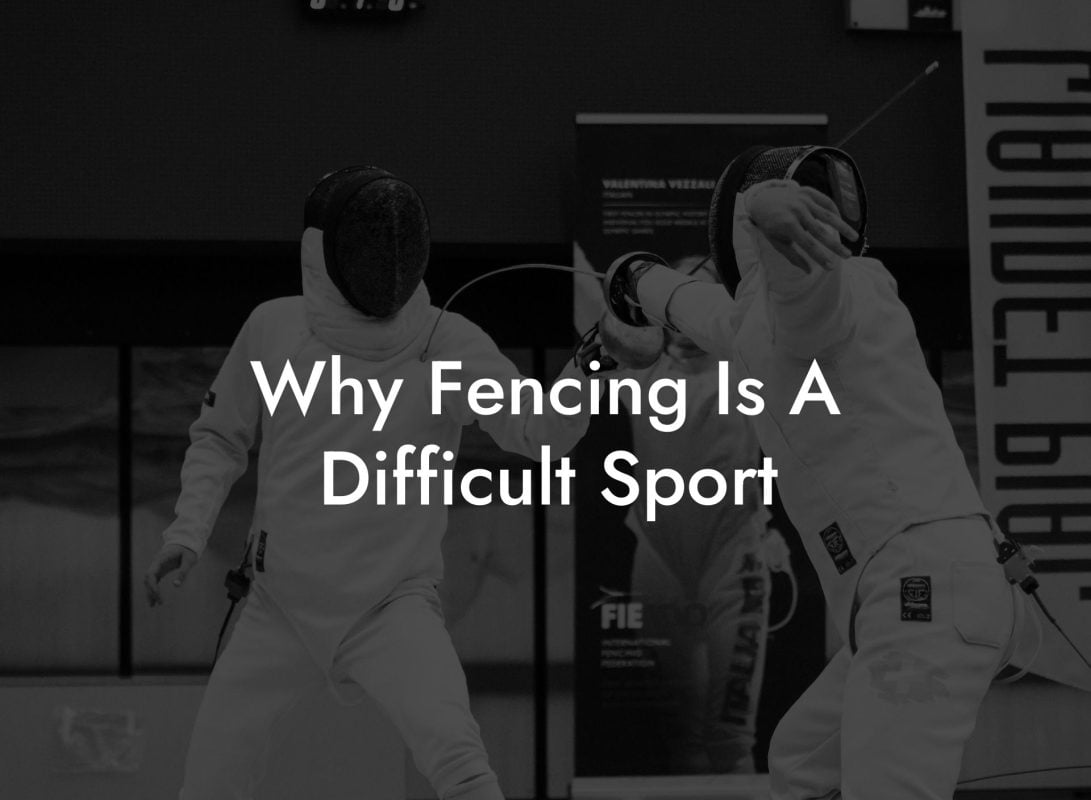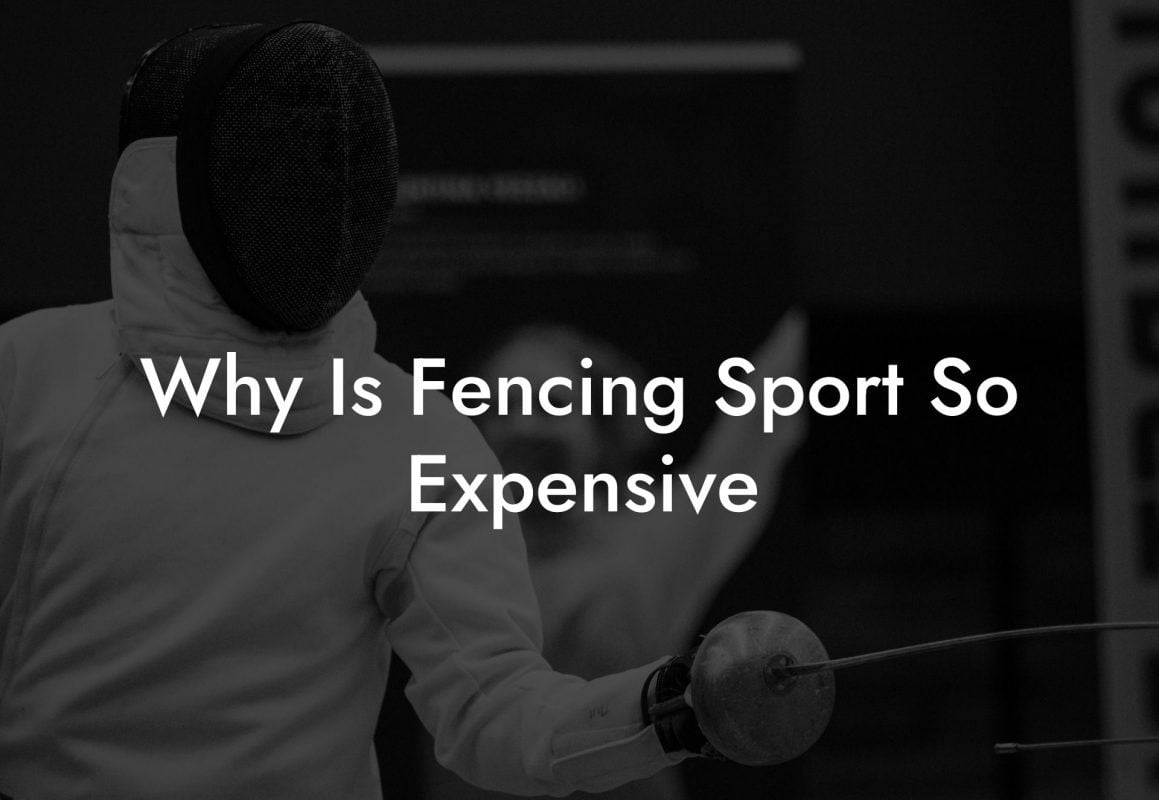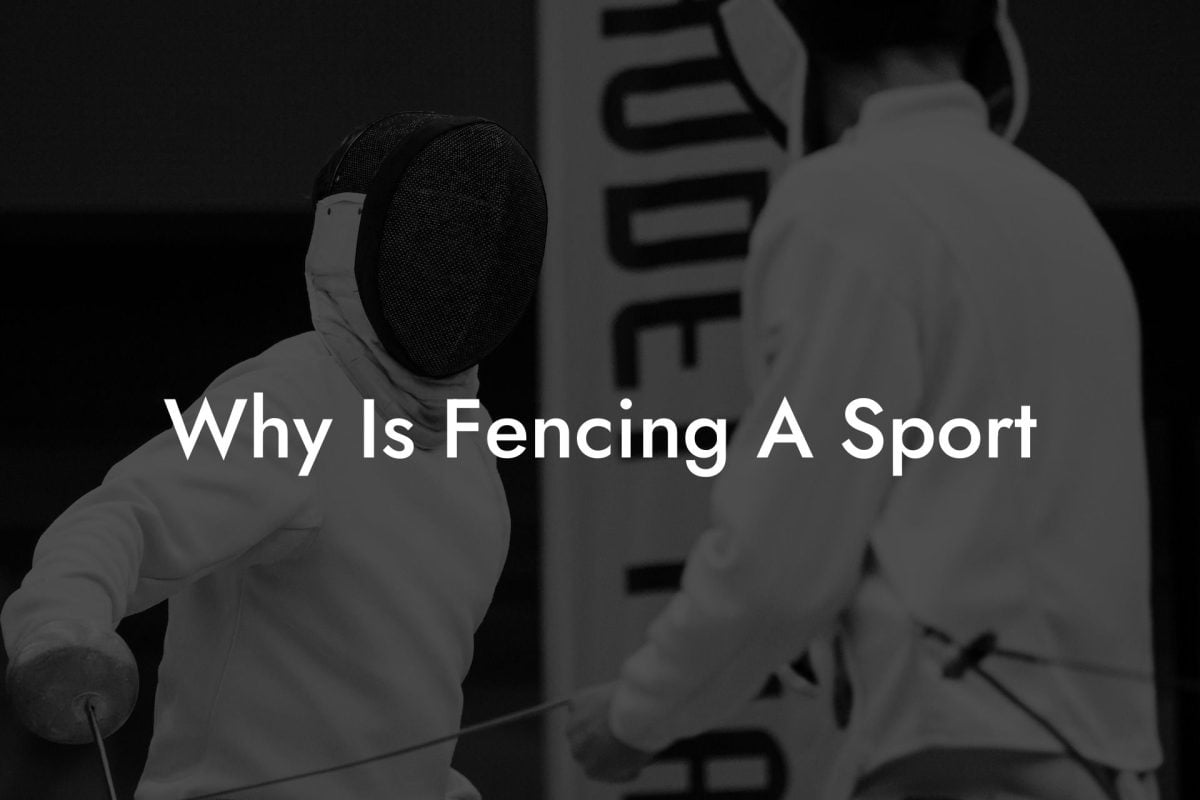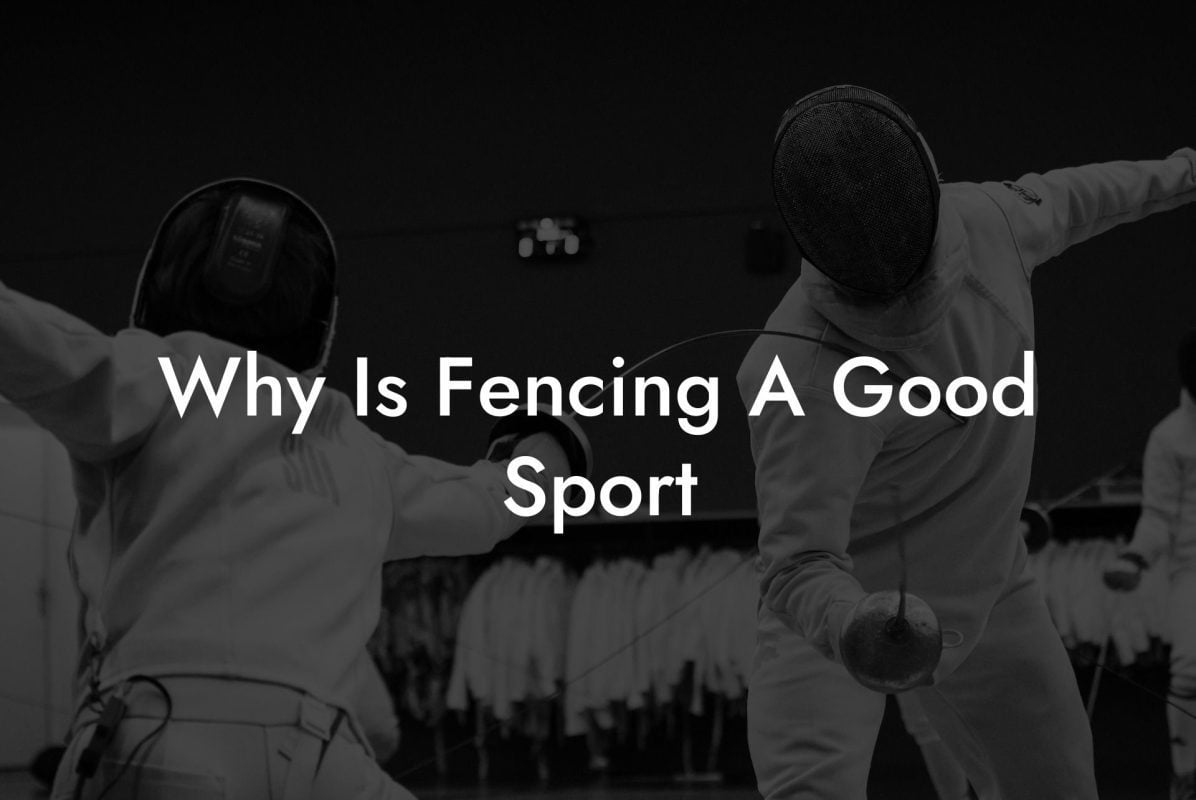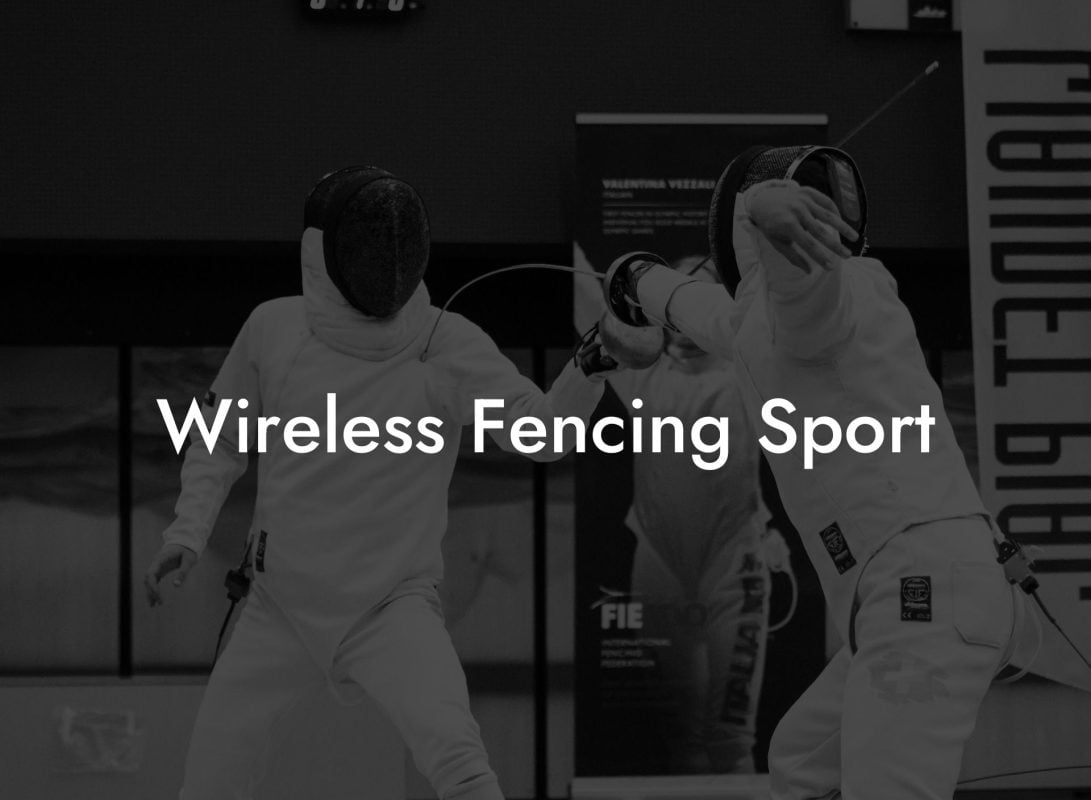Are you considering getting into the exciting world of fencing but unsure about the right age to start? Worry not, as Anchorage Fencing Club is here to guide you on the ideal fencing sport starting age and why it matters. Let's dive into the wonderful adventure that is fencing!
Fencing Sport Starting Age Table of Contents
Understanding the Sport of Fencing
Understanding the Sport of Fencing
Fencing is a dynamic and fast-paced sport that requires exceptional physical and mental agility. It involves scoring points by hitting the opponent with a weapon while avoiding being hit oneself. There are three primary types of fencing – foil, epee, and sabre, each distinguished by different rules, weapons, and techniques.
The Importance of Age in Fencing
Age plays a significant role in the physical and mental development of a fencer. Besides the physical aspects, such as strength, flexibility, and endurance, mental skills like focus, discipline, and decision-making are also crucial to excel in this sport.
Optimal Starting Age for Fencing
It is generally recommended to start fencing between the ages of 6 and 12 years old. This age range is considered suitable for developing fundamental skills and understanding the sport's rules and techniques. However, the best starting age can vary depending on the individual's physical and mental capabilities.
Starting at a Young Age (6-9 years)
- Early exposure to the sport can be advantageous in developing basics and conditioning, providing a strong foundation for future success.
- Children in this age group tend to be more enthusiastic, adaptable, and open-minded, translating into a smoother learning curve.
- However, it is crucial to practice moderation, giving plenty of time for rest, recovery, and play to avoid sports-related injuries or overtraining.
Starting at Tween Age (10-12 years)
- This age group is known for displaying improved physical strength, endurance, coordination, and balance, positively impacting fencing performance.
- Tweens can also develop tactical awareness and decision-making skills required for strategic fencing gameplay.
- Beginning in this age bracket typically allows for ample time to develop skills and compete at higher levels in due time.
Starting in Teenage Years or Later (13+ years)
- Though starting later might pose a steeper learning curve, passion and dedication can lead to significant progress and enjoyment of the sport.
- Given proper training, older beginners can still achieve proficiency and compete in various levels of competition.
- Furthermore, fencing can also be enjoyed as a recreational activity without the pressure of competitive success.
Fencing Sport Starting Age Example:
Imagine a child named Alex who is 8 years old and displays an interest in fencing. Alex's parents contact a local fencing club, where he begins taking beginner lessons and participating in youth-level competitions. By starting early, Alex gains not just technical skills but also learns essential life skills such as discipline, teamwork, and sportsmanship.
As Alex enters tween age, he continues to improve, potentially taking part in regional and national competitions. Regardless of his future achievements, Alex will benefit from starting his fencing journey at a young age.
Embarking on the fencing sport at a younger age, with dedication and the right guidance, can help foster a strong foundation for success. We hope this Anchorage Fencing Club article has shed light on the ideal fencing sport starting age and inspired you to jump into the captivating world of fencing. Feel free to share this article with others who may be considering taking up the sport and explore our other guides on the Anchorage Fencing Club blog.

